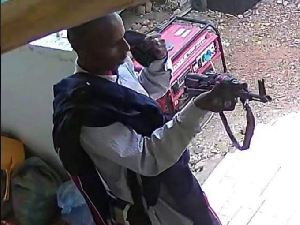Opinions of Thursday, 18 February 2016
Columnist: Amoah, Anthony Kwaku
GES: Time with Moses Lamptey and his doves
By Anthony Kwaku Amoah
People rear animals for food, income and security. Others also do it for pleasure, sports and religion. This composition exposes a man who stands for the welfare of animals. He extends care and love to a flock of attractive doves not for the sake of delicacy and money but for something else. Just read on!
A quick web search on the dove explains why Moses Lamptey behaves the way he does towards this bird. Doves usually are white in colour even though some of Lamptey’s ‘lover’ birds are multi-coloured. The dove portrays love, peace and obedience from the perspectives of Christianity, Judaism and paganism.
According to Genesis 8:11, Noah released the dove after the flood to survey and find land for habitation. It returned with a fresh olive leaf in its beak to communicate that it has found the land. Rabbinic literature has interpreted this olive leaf as “the young shoot of the Land of Israel” or the dove’s preference for bitter food in God’s service rather than sweet food in the service of man. The Talmud compares the spirit of God to the dove which hovers over the waters. In Christian Iconography, the dove signifies Holy Spirit and it is compared to the Baptism of Jesus in Matthew 3:16.
In post-biblical Judaism, souls are envisioned as bird-like (Bahir 119), a concept which is derived from the Biblical notion of dead spirits “chirp” as told in Isaiah 29:4. The Vilna Gaon explicitly declares that the dove is a symbol of the human soul (Commentary to Jonah, 1). It is also a symbol of the people of Israel as told by the Song of Songs Rabbah 2:14 and an image which is frequently repeated in Midrash.
In paganism, the goddesses; Atargatis, Ishtar, Inanna, Astarte and Aphrodite are depicted with doves. The legendary queen, Semiramis, is believed to have been raised by doves that connected her to the goddesses. In the Epic of Gilgamesh, the dove is said to have been released to search for the end of the deluge.
Actually, I have not yet visited the markets to confirm the price tags. A journalist friend just informed that a pure white dove is between Ghc30.00 and Ghc40.00 with the multi-coloured one going for about Ghc15.00 to Ghc20.00 at Agbogbloshie in Accra. The dove is a highly adored bird to the African traditionalist and fetish priest. It stands for purity of heart, love, peace, wealth, respect and obedience.
Moses Lamptey works with the Ghana Education Service (GES) and has been at the Headquarters of the Service as a security officer since 1995. The role of a public relations officer demands that one establishes a good link with all departments of the Service, including the non-teaching staff, for perfect collation and dissemination of data and information to the general public. I came to work around 7:00 a.m. to meet Lamptey feeding some doves. I moved to him for better appreciation; just follow the dialogue:
Amoah: Good morning, officer!
Lamptey: Good morning, my PRO!
Amoah: Please, are these your own doves?
Lamptey: [Smiling with a loaf of bread in hand] No, sir! Nobody owns them. They came from the town and have been here for years now.
Amoah: Then why do you feed them?
Lamptey: Just for the love that I’ve for them
Amoah: So, what happens after feeding them?
Lamptey: Nothing. I’ve been feeding them for the past 8 years.
Amoah: You do it just for pleasure or what?
Lamptey: They’re a wonderful bird and I do it for a spiritual reason.
Amoah: Ooh ok...! I believe you’re a traditionalist.
Lamptey: [laughs for a while] I see this bird as a pure, wise and honest creation of God which is full of God’s blessings. Everybody has to be free with them.
Amoah: So, what have you gained from them within all these years of caring for them?
Lamptey: I don’t lack anything again and I’m also healthy and strong with their prayers. They like me and I also like them. They look for me when I’m not around.
Amoah: Has anyone ever been here to look for them as their owner?
Lamptey: Not at all. For this bird, it can leave you at any time if you treat it bad. They hate to be offended so I’m always careful with them.
Amoah: Do people show interest in buying them?
Lamptey: A lot but how do I sell a friend? I’m also not their owner so I can’t even dream of selling them.
Amoah: How much do you spend on their feeds and how many times do you feed them?
Lamptey: They eat any time food is available. This bread costs Ghc6 and they can eat all of them now. I usually buy bread and millet for them. I feed them in the morning and some evenings.
Amoah: Do you feed them on week-ends too?
Lamptey: Only some Saturdays but Sundays, no! If I won’t be around, I leave their food with a colleague who’ll be around.
Amoah: How do you get the money to buy their feeds regularly?
Lamptey: They pray for me to get something to feed them on. Some people sometimes dash me things for them. They don’t have farms or earn salaries but they must eat.
Amoah: How many are they and where do they sleep at all?
Lamptey: They’re about 50 and they sleep on top of the office buildings. They don’t destroy anything in the buildings and their droppings too are just small small with no bad scent.
Amoah: Thank you, honourable! Your work no be easy. See you later!
Lamptey: Happy to have you around next time, PRO!
[The two shake hands with each other and the interviewer departs].
Birds, just like man, are a fine creature of God hence the need to handle them well. The dove, grass cutter, rabbit, guinea pig and other animals can be kept for scientific experiments and demonstrations. Schools and institutions need them if the lessons they give to their students should be activity-involving and stimulating.
The writer is an educationist and a public relations officer at the Headquarters of the Ghana Education Service.
E-mail: amoatec27@yahoo.com














